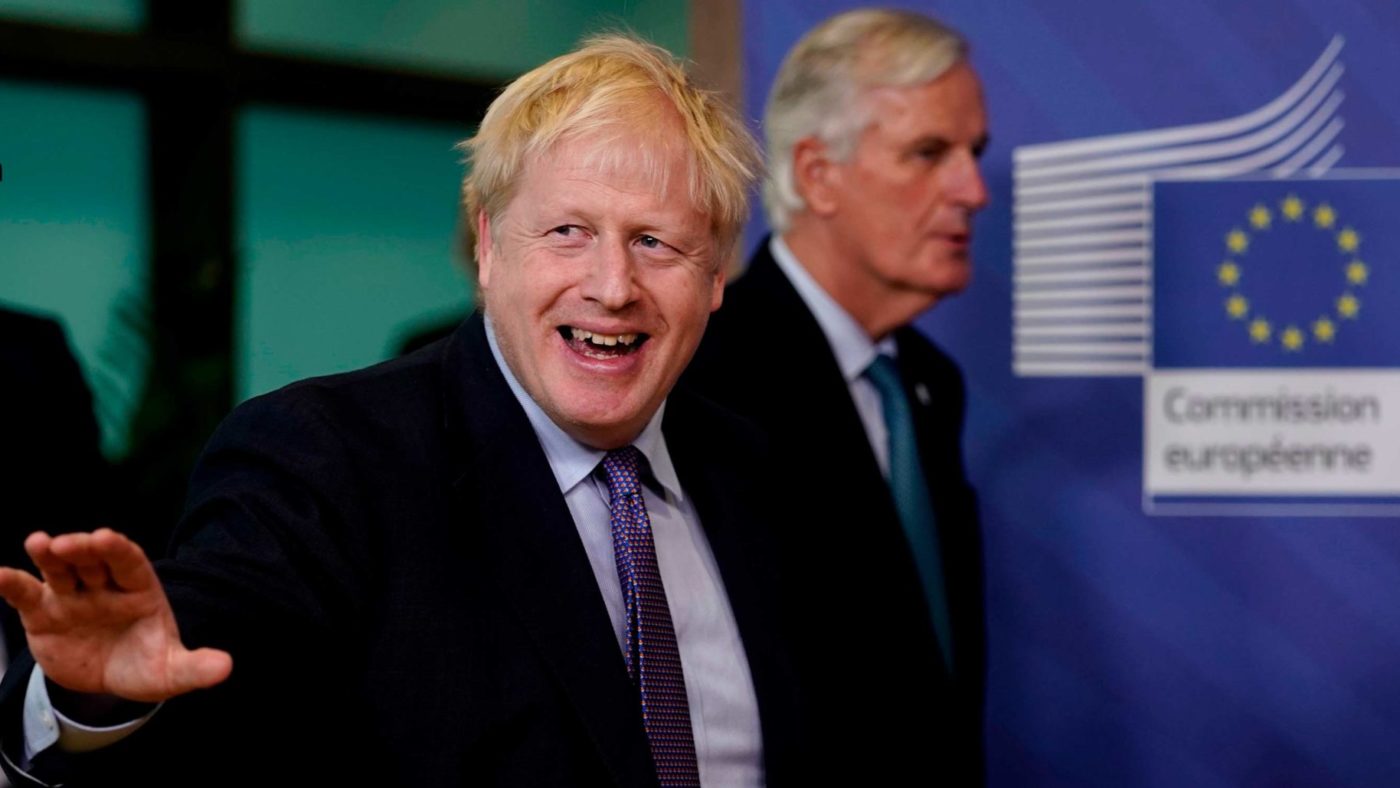So, the Brexit process is ending in just the manner we’ve come to expect: a mixture of confusion, posturing, hyperbole and hysteria, as another arbitrary, dispensable deadline approaches. In theory, we should know by tonight whether reports of a French veto or the Royal Navy arresting foreign fishermen were empty threats, or the prelude to ‘no deal’. But given the deadlines that have already passed, don’t bet against the can being kicked down the road one more time. There are plenty more last chances to come.
For all the high drama, though, the difference between a pretty thin trade deal and ‘no deal’ is not as stark as some might suggest. That reflects the big shift in negotiating aims under Boris Johnson, whose deal is a world away from the kind of perma-alignment proposed by Theresa May’s government (a fact many ‘soft’ Brexiteers now wistfully acknowledge). And though the most ardent Brexiteers will see any agreement as a fearful capitulation, even with a deal we will be out of the single market and customs union, rid of the ghastly Common Agricultural Policy and outside the system of free movement. Whether you welcome that or not, these are undoubtedly substantial changes.
They are also, I’d wager, permanent. The shock troops of Continuity Remain may vow to fight on in the jungle long after the battle is over, but they will eventually emerge, blinking irrelevantly into the post-Brexit sunlight in a few years’ time.
The PM may yet feel emboldened to go for ‘no deal’, based on two factors: first, that the cost in Brexiteer fury is not worth the benefits of a thin deal; second, that whatever happens, 2021 will be dominated by the recovery from Covid (a view borne out by the OBR’s various forecasts, incidentally). Equally, he may feel that any ‘no deal’ disruption will pale in comparison to the sheer awfulness of 2020.
Personally, I think that would be a miscalculation. A nightmare confluence of surging Covid cases and blocked up ports interfering with both food supplies and vaccine rollout carries huge risks.
Beyond the immediate fallout, how will the result of this negotiation affect us in the longer term?
We often hear claims that Brexit will be either a triumph or disaster, freeing us from the shackles of Brussels, or permanently reducing Britain to an isolated rump. Both scenarios rely on a fundamental misconception: that, for good or bad, EU membership is the key determinant of this country’s success.
The fact is we could have been far more laissez-faire while still in the EU, and that we will (more’s the pity) still be a typical high-tax, high-regulation Western economy once we have left. We might like to think of Brussels as the source of all red tape, but our own politicians don’t need much encouragement to stick their oar in. Equally, outside the EU we will still be a major military power, one of Europe’s biggest economies and a world leader in many fields, not the ‘friendless’ North Korea in the Atlantic that some Remain partisans like to conjure.
In short, our future prosperity is in our own gift. And, as I noted in last week’s briefing, factors outwith Brexit are more important to our long-term success, not least the attempt to rapidly decarbonise swathes of the economy. That will have a far more significant long-term impact than either the fallout from the pandemic, or the terms on which we trade with our near neighbours.
To return to the here and now – and at the risk of being proven almost immediately wrong – I’ll stick with my September prediction that there will be a deal. As our editor-in-chief notes today , though there will certainly be some dissenters, most Tory MPs want to get this over the line and will back a deal if Mr Johnson comes back with one. I suspect the EU’s team feels a similar desire to simply get the thing done. Whatever its consequences for Britain, a messy no deal is the last thing a Covid-ravaged continent needs.
Click here to subscribe to our daily briefing – the best pieces from CapX and across the web.
CapX depends on the generosity of its readers. If you value what we do, please consider making a donation.


